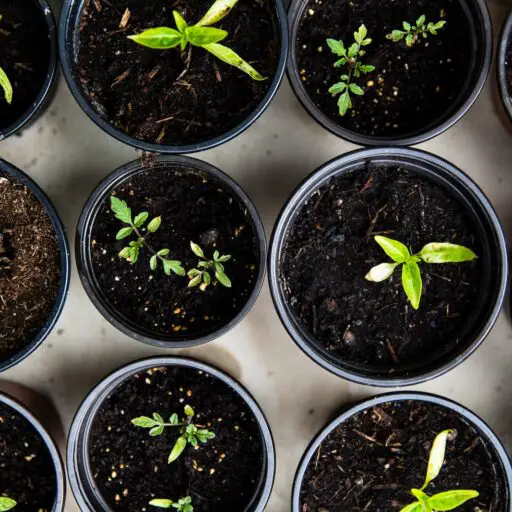Support our educational content for free when you purchase through links on our site. Learn more
Unlocking the Potential of Community Gardens to Address Social Issues
Introduction:
Community gardens are more than just patches of green in our neighborhoods. They have the power to transform communities and tackle social issues in unique and meaningful ways. In this article, we will explore the various social issues that can be impacted by community gardens and how these green spaces can bring about positive change. From promoting food security to building a sense of belonging, community gardens are a valuable resource that deserves our attention and support. Join us as we delve into the social impact of community gardens and discover how they can make a difference.
Table of Contents
- Food for Thought: The Social Impact of Community Gardens
- Community Gardens: A Catalyst for Change
- FAQs: Shedding Light on the Power of Community Gardens
- Quick Tips and Facts: Harnessing the Power of Community Gardens
- Useful Links
- Reference Links
Food for Thought: The Social Impact of Community Gardens
Community gardens serve as much more than sources of fresh produce. They have the potential to combat social issues and revitalize neighborhoods. Here, we explore the multiple ways in which community gardens can bring about positive change.
Community Gardens: A Catalyst for Change
Promoting Food Security
One of the most significant social issues that community gardens can impact is food security. In areas where fresh and healthy food is scarce, community gardens provide essential produce to residents. By growing their own fruits and vegetables, community members gain access to nutritious food options, addressing the issue of food deserts. This not only improves physical health but also promotes sustainable living.
- Community gardens alleviate food insecurity by providing fresh produce to underserved communities.
- Growing food locally reduces the carbon footprint associated with long-distance transportation of produce.
- Empowering individuals to take control of their food sources promotes self-sufficiency and resilience.
Fostering Health and Well-being
The physical and mental health benefits of community gardens cannot be understated. Engaging in gardening activities promotes active lifestyles and contributes to overall well-being. Spending time in these green spaces offers an opportunity for stress relief and relaxation while connecting with nature.
- Gardening is a form of exercise, promoting physical health and reducing the risk of chronic diseases.
- The presence of green spaces has been linked to improved mental health and reduced stress levels.
- Community gardens act as a sanctuary for individuals seeking solace and nature connection.
Encouraging Social Connection
Community gardens play an essential role in fostering social connections and building a sense of belonging. These green spaces serve as gathering points for individuals from diverse backgrounds, allowing for interactions and the establishment of relationships. Through shared activities and cooperative gardening efforts, lasting bonds are formed, contributing to the fabric of community life.
- Community gardens provide a space for meaningful social interactions among neighbors and community members.
- Gardening together fosters a sense of community, breaking down social barriers and creating a sense of belonging.
- Interactions in community gardens can lead to the exchange of knowledge, cultures, and traditions, fostering multicultural understanding.
Creating Learning Opportunities
Community gardens offer valuable learning opportunities for individuals of all ages. From teaching gardening skills to exploring sustainable practices, these green spaces spark curiosity and empower people to become more environmentally conscious. Educational programs and workshops hosted in community gardens deepen knowledge on topics such as urban agriculture, composting, and biodiversity.
- Community gardens serve as outdoor classrooms for hands-on learning experiences.
- Children exposed to gardening develop a greater appreciation for nature, food sources, and sustainable practices.
- Community gardens provide platforms for sharing knowledge and skills, creating an ongoing cycle of learning and growth.
Revitalizing Neighborhoods
One of the remarkable social impacts of community gardens is their ability to revitalize and transform neighborhoods. These green spaces bring beauty and vibrancy to otherwise neglected areas, creating a sense of pride among residents. Involving community members in the development and maintenance of community gardens fosters a sense of ownership, leading to overall neighborhood improvement.
- Community gardens act as focal points that attract individuals and enhance the aesthetic appeal of the neighborhood.
- Well-maintained gardens deter crime and vandalism, contributing to a safer community environment.
- The presence of community gardens can increase property values, benefiting the entire neighborhood.
FAQs: Shedding Light on the Power of Community Gardens
What are the problems with community gardens?
While community gardens have many benefits, they can sometimes face challenges. Some common problems with community gardens include:
- Lack of funding and resources: Community gardens often struggle to secure funding for maintenance, improvements, and educational programs.
- Limited access for marginalized communities: In some cases, certain groups may face barriers to participating in community gardens due to factors such as language barriers or lack of transportation.
- Lack of community engagement: Without active involvement from community members, community gardens may not reach their full potential.
What problem do community gardens solve?
Community gardens help address various social issues, including:
- Food insecurity: Community gardens provide fresh produce to underserved communities, addressing the scarcity of nutritious food options.
- Poor physical and mental health: Engaging in gardening activities promotes active lifestyles and offers stress relief, improving overall well-being.
- Social isolation: Community gardens create spaces for social interaction and the establishment of relationships, combating social isolation.
What are 5 benefits of a community garden?
The benefits of community gardens are numerous. Here are five key advantages:
- Improved access to fresh produce: Community gardens provide residents with access to nutritious, locally grown food.
- Enhanced physical health: Engaging in gardening activities promotes active lifestyles, reducing the risk of chronic diseases.
- Improved mental health: Spending time in green spaces has been linked to reduced stress levels and improved mental well-being.
- Strengthened social connections: Community gardens foster a sense of community and belonging, encouraging social interactions.
- Neighborhood revitalization: Community gardens beautify neighborhoods, attracting individuals and increasing property values.
Can community gardens help address social inequality?
Yes, community gardens can play a significant role in addressing social inequality. By creating spaces for shared experiences and knowledge exchange, community gardens bring people from diverse backgrounds together. These spaces promote social cohesion, cultural understanding, and empower individuals to take control of their food sources. Additionally, community gardens provide opportunities for socioeconomically disadvantaged communities to access fresh produce and educational programs that may not have been otherwise available.
Quick Tips and Facts: Harnessing the Power of Community Gardens
- Involve all members of the community: Encourage diverse participation to foster inclusivity and understanding.
- Establish partnerships: Collaborate with local organizations and schools to maximize the impact of community gardens.
- Educate and empower: Offer workshops and educational programs that teach gardening skills and sustainable practices.
- Promote accessibility: Ensure community gardens are easily accessible to all, including individuals with disabilities.
- Embrace diversity: Celebrate the diverse cultural backgrounds and traditions of community members within the garden space.
Useful Links
- Community Gardening™
- Amazon – Gardening Tools
- Amazon – Seeds and Plants
- Amazon – Composting Bins
- Walmart – Gardening Supplies
- Etsy – Gardening Decor
Reference Links
- "The Social Impact of Community Gardens: A Review of Perception Scale and Preference| ResearchGate" – Read Article
- "Community Gardens: A Strategy to Improve Food Security in Urban Areas| PubMed" – Read Article
- "The Effects of Community Gardens on Neighboring Property Values| Urban Planning and Design Research" – Read Article



